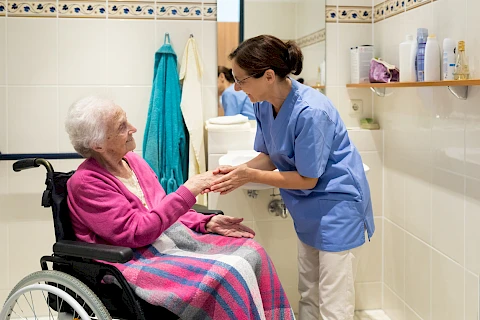
Incontinence is a common issue that affects many seniors. It can be a source of embarrassment, but it should still be addressed openly. Understanding that incontinence is a manageable condition is the first step in finding effective solutions. Senior Helpers shares practical ways to manage incontinence and emphasizes the importance of communication with healthcare providers and family members.
What Incontinence Entails
There are several types of incontinence that seniors may experience. Stress incontinence occurs when physical activities like coughing or lifting cause leakage. Urge incontinence involves a sudden, intense urge to urinate, often leading to accidents. Mixed incontinence is a combination of both stress and urge types.
The causes of incontinence can vary. They may include weakened pelvic muscles, certain medications, or medical conditions like diabetes. Incontinence can affect daily life, limiting activities and affecting emotional well-being. You must understand the type and cause to manage it effectively.
Practical Solutions for Managing Incontinence
There are several practical solutions for managing incontinence.
- Lifestyle Changes: Modifying your diet, exercising regularly, and managing fluid intake can help. Reducing caffeine and alcohol can also make a difference, as they can irritate the bladder.
- Pelvic Floor Exercises: Also known as kegel exercises, these strengthen the muscles that support the bladder. Regular practice can improve bladder control.
- Scheduled Bathroom Visits: Bladder training can help in managing incontinence. Setting specific times to use the bathroom can prevent accidents by training the bladder to hold urine longer.
Senior-Friendly Products for Incontinence
There are many senior-friendly products available to manage incontinence discreetly. These include pads, absorbent underwear, and bed protectors. Choosing the right product depends on individual needs and comfort. When selecting products, consider the level of absorbency required and the fit. Comfort and discretion are favored, so look for products that are easy to use and wear under clothing without being noticeable.
Communicating With Healthcare Providers
Open communication with healthcare providers is critical in managing incontinence. Don't hesitate to discuss your symptoms and concerns with your doctor. Here are some questions you might want to ask during your appointment:
- What type of incontinence do I have?
- What are the possible causes?
- What treatment options are available?
Healthcare providers play a part in helping you find the best solutions. They can offer advice on lifestyle changes, recommend suitable products, and refer you to specialists if needed.
Involving Family Members and Caregivers
Family members and caregivers can offer beneficial support. Discuss incontinence openly with loved ones to create a supportive environment. Share your experiences and concerns with family members. Explain what support you need, whether it's help purchasing products or emotional understanding. Encourage family members to be empathetic and patient. Their encouragement and assistance can make a significant difference in managing the condition.
Get Assistance From Senior Helpers Columbus North, OH
Incontinence is a common issue that can be effectively managed with the right solutions and support. Remember that help is available, and you are not alone. Contact us at Senior Helpers Columbus North, OH, if you or a loved one need assistance managing incontinence. We provide personalized support in Columbus, Westerville, Hilliard, Delaware, and Dublin.